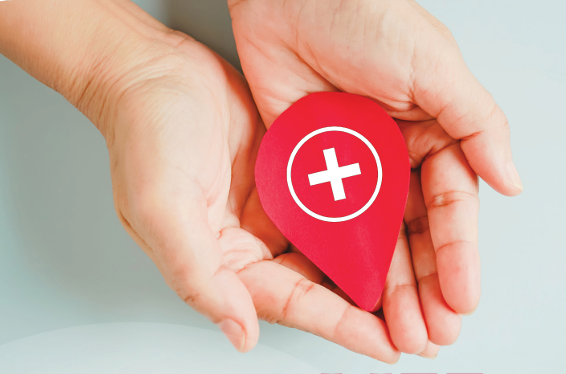Where and how to donate blood this winter in New Jersey.
It’s estimated that someone in the United States needs blood every two seconds, and, since January is National Blood Donor Month, there couldn’t be a better time to donate. Blood doesn’t have a long shelf life—between five and 35 days, depending on the component—so there’s rarely, if ever, a surplus. This is especially true in winter, when donations typically slow down because of bad weather, winter holidays and seasonal illnesses like colds and flu.
“Simply put, there’s no substitute for blood,” says Sally Wells, Business Development Liaison, Robert Wood Johnson University Hospital Blood Services. “Blood cannot be manufactured. We always say that ‘it’s the blood on the shelf’ that makes it possible to treat traumatic injuries, perform surgeries, support premature babies and treat patients who are going through advanced cancer therapies, to name a few of its uses.”
While all RWJBarnabas Health facilities run blood drives several times a year, Wells says that multiple blood drives will occur in January, noting that donor centers in New Brunswick and Somerset will be open daily. “Our message for National Blood Donor Month is ‘Donate 3 in 2023,’” she says, referring to three pints of blood.
The ripple effect of the pandemic is still being felt in many areas, including blood donation. “People aren’t donating as often as before the pandemic, so we’re still experiencing periodic shortages,” says Wells. “We haven’t been able to build up a reserve, so certain blood types and products are always in high demand.”
The blood type that is most in demand is type O-negative (O-). “This is the universal blood type be cause it can be used in an emergency to transfuse anyone until the person’s blood type can be verified,” says Wells.
If you don’t know your type, don’t worry. When you donate, you’ll be issued a blood-donor card that will list your blood type.
How to DonateThe four basic steps to donating blood are:
|
Requirements for DonorsTo donate blood, you must:
|
For more information or to schedule an appointment to donate blood in New Jersey, call 732-235-8100 ext. 221 (New Brunswick) or 908-685-2926 (Somerset), or visit www.rwjuhdonorclub.org.
